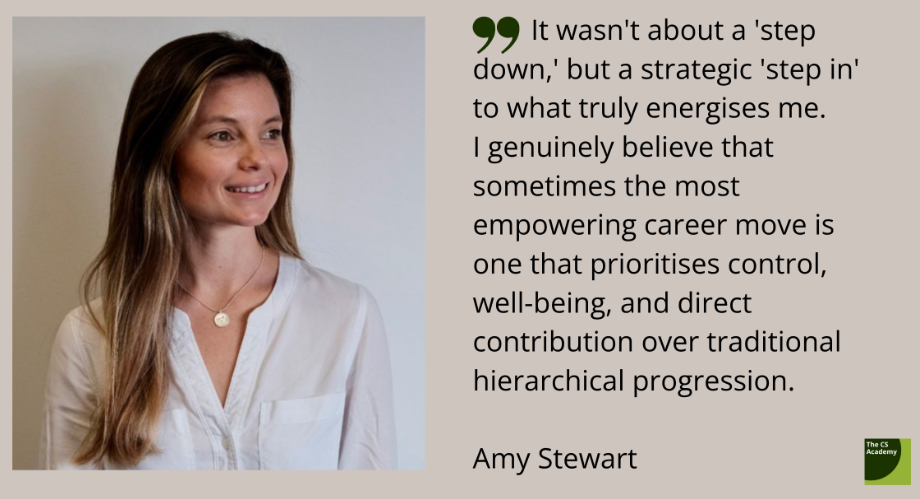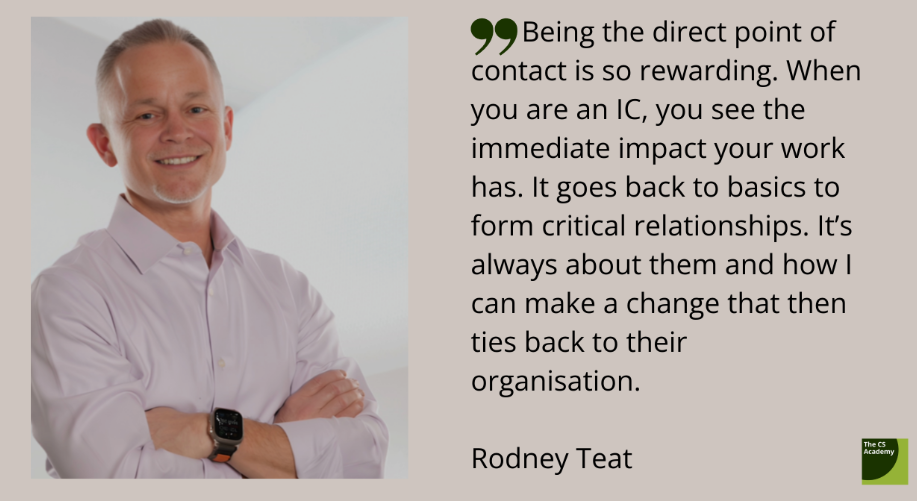Back to Basics: Why CS Leaders Are Trading Titles for Impact

Let's Begin
As someone who keeps a close eye on the pulse of the Customer Success community, I’ve been observing a subtle but powerful movement. We’re all intimately familiar with the pressure cooker that is modern CS leadership: the focus on driving expansion revenue, the constant firefighting, the back-to-back meetings, and the weight of team performance can be overwhelming. The unspoken rule has always been to climb: CSM to Team Lead, to Director, to VP.
But what if the top of the ladder isn't the destination?
Lately, I've become curious about some career movements and how people reacted to them on LinkedIn, one that challenges my conception of career progression.
I'm seeing seasoned leaders in Customer Success—people who have earned their stripes and their titles—making a deliberate choice to step (back) into Individual Contributor (IC) roles.
And they’re not doing it out of necessity; they’re doing it for a reason that’s far more profound: fulfilment and following their passion. To understand this better, I spoke with two individuals who made this exact move very recently.
Last week, Amy announced in a post that after six years at Accelo, culminating in her role as Global VP of Customer Success and leading a team of 17, she realised her passion truly lies in direct customer impact.
When we spoke, the first thing I noticed was the energy in her voice. She had bright eyes and spoke with a palpable passion. She described her move back to a Customer Success Manager role not as a step down, but as “a big step into a career that fits around her actual current lifestyle".
Then I spoke with Rodney, who recently moved from a leadership position to a CSM role at Adobe. His perspective was a powerful echo of Amy's. "Often," he explained, "we add layers between our clients and what they need. We create processes and organizations that remove us from really making a big impact."
As the CEO and Founder of CustomerSuccessU and a former Director of CS, his days were filled with running a successful business, helping people to thrive in CS. But what he described was that he was missing making this direct impact and the love of having "human connections," developing solutions with a client, and "being in control of the situation again." That sense of direct ownership and influence is something many leaders quietly admit they miss.
Rodney used a phrase that has stuck with me: "making a real impact." It's the core of it all. Both he and Amy reported that their shared motivation was a desire for full dedication to their clients. They wanted the freedom to investigate customer challenges directly and the satisfaction of making a true, long-lasting change—a change they could see and feel themselves, not just read about in a weekly report.
So, what do we learn from this?
We’ve been conditioned to believe that career progression is a linear path upwards. We think the next title, the bigger team, and the larger scope will automatically bring more joy, passion, and gratification. But Amy and Rodney are living proof that this isn't the only path and that you can return to an IC role. They show us how crucial it is to find your own North Star—to honestly assess what drives you, how you want to work, and what truly fulfils you.
In a world that feels like it’s spinning faster every day, their choice is also an act of gaining back control. An IC role, while demanding, offers a more focused sphere of influence. You are the master of your own book of business. Your successes and failures are directly tied to your actions. This return to the craft can be an antidote to the chaotic, high-level abstraction of management.
Let's address the elephant in the room: compensation. Yes, a move from a VP or Director role to a CSM role often comes with a pay cut, but sometimes not as much as you think. But what Amy and Rodney are teaching us is that fulfilment is an equation with more than one variable. In a world where burnout is rampant, they are choosing to trade a certain amount of salary for a less stressful, more frictionless, and deeply rewarding daily existence. They are optimizing for a fulfilled life, not just a fatter wallet.
At its heart, Customer Success is about human connection. It's about empathy, strategy, and the genuine desire to see others find value. This move that Amy and Rodney have made is a powerful return to those roots.
They serve as brilliant examples of the bravery required to align your passion with your profession, even if it defies conventional wisdom. They chose to show up, be authentic, and build a career that serves them, not just their resume.
If you'd like to follow their inspiring journeys, you can find them on LinkedIn:
Their stories are a timely reminder for all of us to pause and ask: What does success really look like for me?
If you like this article, please follow me on LinkedIn or subscribe to my newsletter. And if you ever think about mentorship to help you find more clarity in your professional world, feel free to book a meeting with me here.


